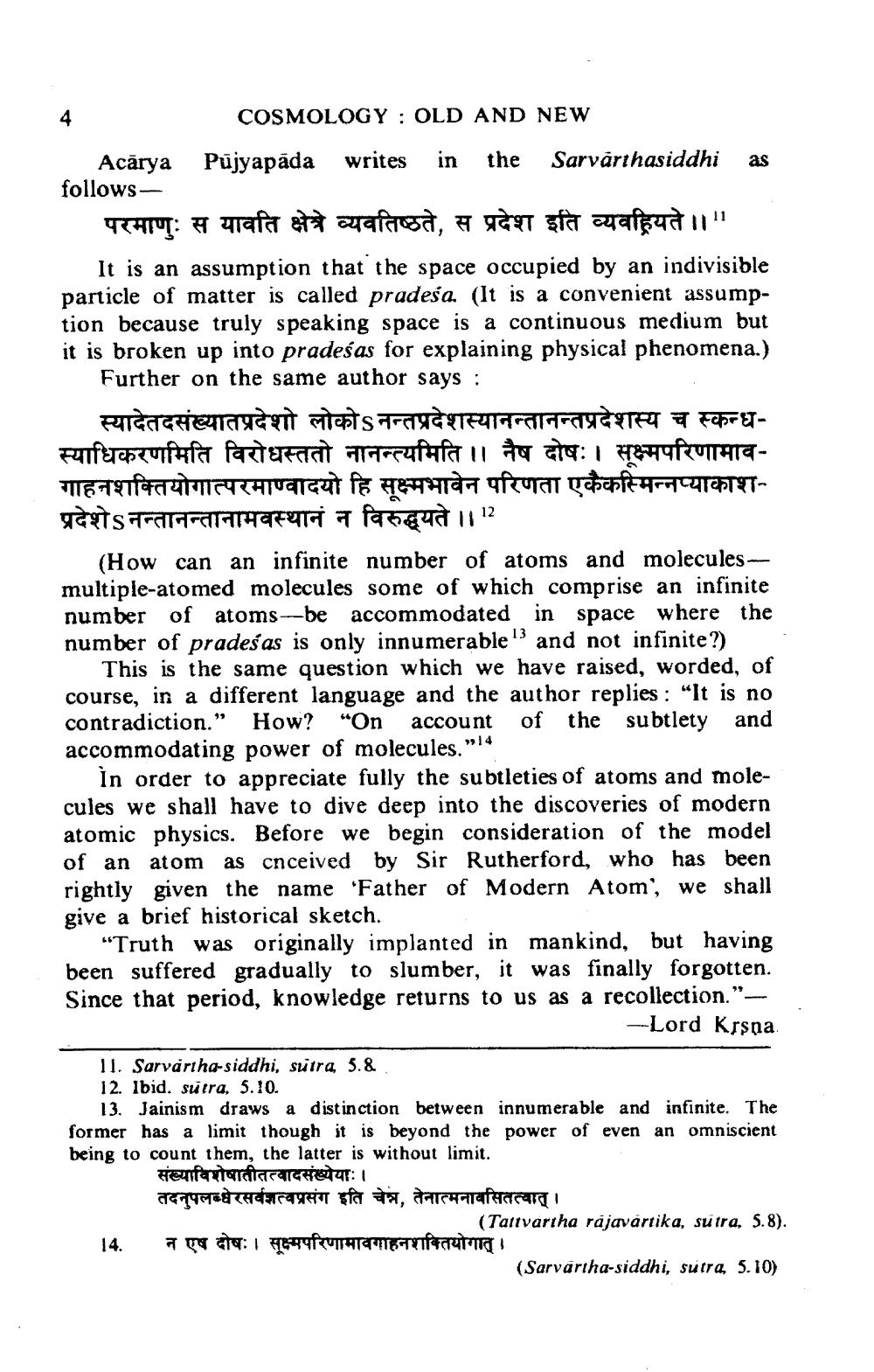________________
COSMOLOGY : OLD AND NEW Acārya Pujyapāda writes in the Sarvárthasiddhi as follows
परमाणः स यावति क्षेत्रे व्यवतिष्ठते, स प्रदेश इति व्यवहियते॥1
It is an assumption that the space occupied by an indivisible particle of matter is called pradeśa (It is a convenient assumption because truly speaking space is a continuous medium but it is broken up into pradeśas for explaining physical phenomena.)
Further on the same author says :
स्यादेतदसंख्यातप्रदेशो लोकोऽनन्तप्रदेशस्यानन्तानन्तप्रदेशस्य च स्कन्धस्याधिकरणमिति विरोधस्ततो नानन्त्यमिति ।। नैष दोषः। सूक्ष्मपरिणामावगाहनशक्तियोगात्परमाण्वादयो हि सूक्ष्मभावेन परिणता एकैकस्मिन्नप्याकाशप्रदेशेऽनन्तानन्तानामवस्थानं न विरुद्ध्यते ।। 12
(How can an infinite number of atoms and molecules - multiple-atomed molecules some of which comprise an infinite number of atoms--be accommodated in space where the number of prades as is only innumerables and not infinite?)
This is the same question which we have raised, worded, of course, in a different language and the author replies: “It is no contradiction.” How? “On account of the subtlety and accommodating power of molecules."
In order to appreciate fully the subtleties of atoms and molecules we shall have to dive deep into the discoveries of modern atomic physics. Before we begin consideration of the model of an atom as cnceived by Sir Rutherford, who has been rightly given the name 'Father of Modern Atom', we shall give a brief historical sketch.
“Truth was originally implanted in mankind, but having been suffered gradually to slumber, it was finally forgotten. Since that period, knowledge returns to us as a recollection.”—
--Lord Krsna.
11. Sarvartha-siddhi, sutra, 5.8 12. Ibid. sutra, 5.10.
13. Jainism draws a distinction between innumerable and infinite. The former has a limit though it is beyond the power of even an omniscient being to count them, the latter is without limit.
संख्याविशेषातीतत्वादसंख्येयाः। तदनुपलब्धेरसर्वज्ञत्वप्रसंग इति चेन्न, तेनात्मनावसितत्वात्।
(Tattvartha rajavartika, sutra, S.8). 14. 79: 1 f tavfaretra
(Sarvartha-siddhi, sutra, 5.10)




